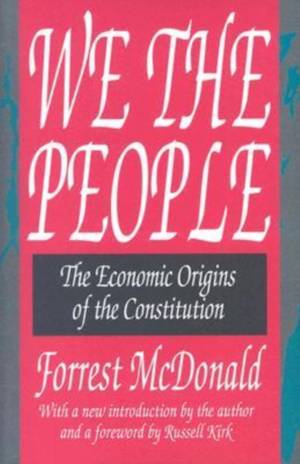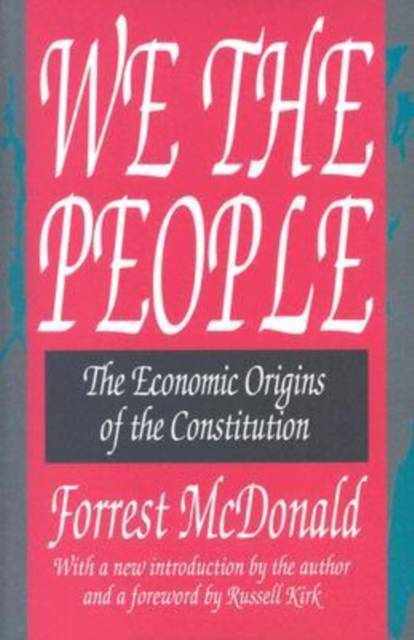
- Retrait gratuit dans votre magasin Club
- 7.000.000 titres dans notre catalogue
- Payer en toute sécurité
- Toujours un magasin près de chez vous
- Retrait gratuit dans votre magasin Club
- 7.000.0000 titres dans notre catalogue
- Payer en toute sécurité
- Toujours un magasin près de chez vous
Description
Charles A. Bear's An Economic Interpretation of the United States Constitution was a work of such powerful persuasiveness as to alter the course of American historiography. No historian who followed in studying the making of the Constitution was entirely free from Beard's radical interpretation of the document as serving the economic interests of the Framers as members of the propertied class. Forrest McDonald's We the People was the first major challenge to Beard's thesis. This superbly researched and documented volume restored the Constitution as the work of principled and prudential men. It did much to invalidate the crude economic determinism that had become endemic in the writing of American history.
We the People fills in the details that Beard had overlooked in his fragmentary book. MacDonald's work is based on an exhaustive comparative examination of the economic biographies of the 55 members of the Constitutional Convention and the 1,750 members of the state ratifying conventions. His conclusion is that on the basis of evidence, Beard's economic interpretation does not hold. McDonald demonstrates conclusively that the interplay of conditioning or determining factors at work in the making of the Constitution was extremely complex and cannot be rendered intelligible in terms of any single system of interpretation.
McDonald's classic work, while never denying economic motivation as a factor, also demonstrates how the rich cultural and political mosaic of the colonies was an independent and dominant factor in the decision making that led to the first new nation. In its pluralistic approach to economic factors and analytic richness, We the People is both a major work of American history and a significant document in the history of ideas. It continues to be an essential volume for historians, political scientists, economists, and American studies specialists.
Spécifications
Parties prenantes
- Auteur(s) :
- Editeur:
Contenu
- Nombre de pages :
- 460
- Langue:
- Anglais
Caractéristiques
- EAN:
- 9781560005742
- Date de parution :
- 30-01-91
- Format:
- Livre broché
- Format numérique:
- Trade paperback (VS)
- Dimensions :
- 153 mm x 228 mm
- Poids :
- 630 g

Les avis
Nous publions uniquement les avis qui respectent les conditions requises. Consultez nos conditions pour les avis.






